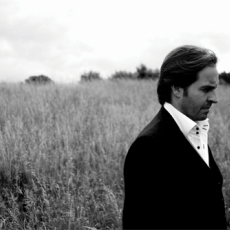Alfie Boe - Love was a Dream - International Record Review
Unlike a certain tenor touted before the public as an opera singer despite his never having performed in an opera, Alfie Boe is the genuine article, whom I first heard in the National Opera Studio Showcase in 1999, when he sang in excerpts from La bohème with Emma Bell and from La traviata. I was pleased by the attractive quality of his lyric tenor. As a Vilar young artist he appeared in concert and gave a song recital in the Royal Opera's Linbury Theatre. He has sing in opera at both Covent Garden and the English National Opera and has a number of CDs to his credit.
The arias in this Lehár selection are sung in English. I list the German titles in the heading as they are probably more recognizable. Why are we given such short measure? ‘Vilja' is really for the soprano, but Patrick O'Connor's note says that there was a precedent.
Throughout the 12 arias, Boe brings much variety by the way of weighting and colouring his voice, so that one piece contrasts effectively with another. He is not afraid to use mezzo voce, as one hears in ‘Vilja', ‘O Mädchen, mein Mädchen' and the Frasquita solo, demonstrating thereby that thought has been brought to bear on the interpretations. Listeners will find such an approach much more rewarding and satisfying than the stand-and-deliver method. More vocal power is applied to some of the other arias, examples being the two from Guiditta.
Most of the choices are well known, including the virtually ubiquitous ‘Dein ist mein ganzes Herz', but two or three are not often performed, at least in Britain. One such is ‘Schönes Italien', to which Boe brings a darker timbre and which he delivers with a jaunty swing, while ‘Immer nur lächeln', one of Lehár's loveliest melodies, is firmly intoned without being pushed, also with a warm middle voice. As with many lyric tenors, the lowest notes in some pieces lack the ring and firmness of those sitting higher in the range, but they are minor points with another less familiar.
The recital begins with another less familiar aria: that from Schön ist die Welt, which draws a softness of tone that immediately lets one know that sensitivity will be frequently brought into play, benefitting the music and the listener alike, and one has a feeling of charm permeating through this programme.
Linn's recording has clarity and is well balanced, except for when the voice is covered by the orchestra for a few bars at the opening of ‘Freunde, das Leben ist lebenswert!', possibly the most effusive number on the disc. It is a pity about the meagre ration, but this SACD should engender a pleasant feeling in those who listen to it.

